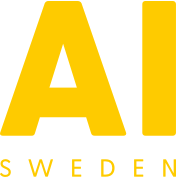AI Talks with Madhav Marathe
Title: Vaccine prioritization: The role of AI and computing in pandemic planning and response
Abstract: Infectious diseases cause more than 13 million deaths a year worldwide. Globalization, urbanization, climate change, and ecological pressures increase the risk and impact of future pandemics. The ongoing COVID-19 pandemic has exemplified several of these issues. The social, economic, and health impact of the pandemic has been immense and will continue to be felt for decades to come.
Computation, computational platforms, computational thinking and lens can play a multi-faceted role in reorganizing, augmenting and supporting global real-time epidemic science and the rapid translation to practical public health systems. Since February 2020, our group has been providing local, state, and federal authorities continuous modeling and analytics support to contain the COVID-19 pandemic.
In this talk, using COVID-19 as an exemplar, I will describe how scalable computing, AI and data science can play an important role in advancing real-time epidemic science. Our recent results on vaccine prioritization strategies to contain the pandemic will be used to illustrate some of these ideas.
About the Speaker: Madhav Marathe is a Distinguished Professor in Biocomplexity, the division director of the Network Systems Science and Advanced Computing Division at the Biocomplexity Institute and Initiative, and a Professor in the Department of Computer Science at the University of Virginia (UVA). His research interests are in network science, computational epidemiology, AI, foundations of computing and high performance computing. Over the last 20 years, his division has supported federal and state authorities in their effort to combat epidemics in real-time, including the H1N1 pandemic in 2009, the Ebola outbreak in 2014 and most recently the COVID-19 pandemic. Before joining UVA, he held positions at Virginia Tech and the Los Alamos National Laboratory. He is a Fellow of the IEEE, ACM, SIAM and AAAS.

